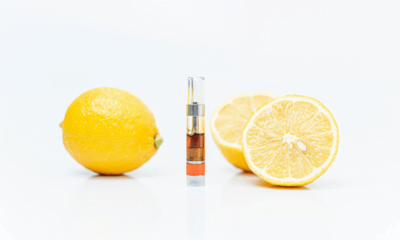The findings of a new study build on existing evidence to confirm that orally-ingested CBD is safe and non-toxic.
Further research carried out by US healthcare and research company, Validcare, has demonstrated the strong safety profile of CBD taken orally.
Researchers examined the effects of CBD in over 1,000 participants, concluding that it is not associated with liver toxicity, testosterone deficiency or day-time drowsiness.
The latest report is the second of two human safety studies providing evidence that addresses Food and Drug Administration’s requests for liver safety data on the cannabinoid.
It shared the conclusions of the combined first and second cohort of the industry-sponsored liver safety study.
Initial findings published last year reported no preliminary evidence of liver disease in the 839 adults taking CBD as part of the trial, and no increase in the prevalence of elevated liver function tests when compared to a population with a similar incidence of medical conditions.

Cohort two included another 222 adults who daily consumed hemp CBD tinctures orally for 60 days, providing blood samples and keeping daily diaries.
The second cohort combined with the first study cohort used 17 commercially available brands and 39 hemp CBD products across a total of 1,061 participants, increasing statistical certainty to 98 per cent.
The investigation’s preliminary findings mirror the first cohort’s results, that there was no association of increased prevalence of increased liver function test, no clinical liver disease, zero product related adverse events and new data concluding no daytime drowsiness and no testosterone deficiency.
The FDA has previously called for more scientific data on liver safety of CBD products, which have grown significantly in recent years.
Robert Kaufmann, MD, director of research for Validcare and former Professor of Medicine at Southern Illinois University School of Medicine, said: “The data in this study looks really good; it’s highly significant, and the chances of it being wrong are very, very small.
“I am very hopeful that this data will allow the FDA to regulate these popular CBD products.”
Jonathan Miller, general counsel to the US Hemp Roundtable, the hemp industry’s national advocacy organisation, has now called for the FDA to act on these findings and regulate CBD products.
“We are excited to report that the ‘real-world data’ that FDA has been soliciting addresses the agency’s safety concerns,” he commented.
“The time has come for the FDA to regulate CBD and other hemp derivatives. If FDA does not act, we call on Congress to pass legislation such as HR 841, HR 6134 and S. 1698 which would require the FDA to develop regulatory pathways for the sale of hemp extracts like CBD in ingestible form.”
Home » Science » New study confirms safety and non-toxicity of CBD

 News6 months ago
News6 months ago
 News6 months ago
News6 months ago
 Science5 months ago
Science5 months ago
 Industry6 months ago
Industry6 months ago
 News6 months ago
News6 months ago
 News5 months ago
News5 months ago
 Health4 months ago
Health4 months ago
 News5 months ago
News5 months ago











